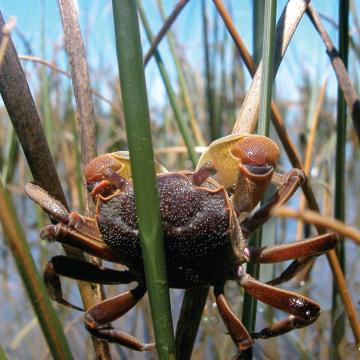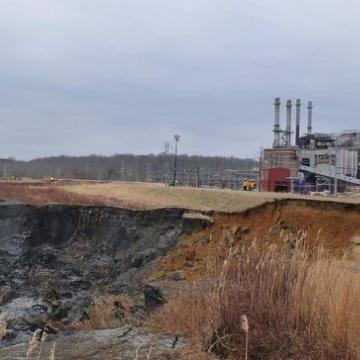-
NewsSmall-scale gold mining in the Peruvian Amazon poses a health hazard not only to the miners and communities near where mercury is used to extract gold from ore, but also to downstream communities hundreds of kilometers away where people eat mercury-contaminated river fish as part of their diet.
-
NewsReusing low-saline oilfield water mixed with surface water to irrigate farms in the Cawelo Water District of California does not pose major health risks, as some opponents of the practice have feared, a study led by Duke University and RTI International researchers finds.
-
NewsHigh-intensity fires can destroy peat bogs and cause them to emit huge amounts of their stored carbon into the atmosphere as greenhouse gases, but a new Duke University study finds low-severity fires spark the opposite outcome.
-
NewsThe Duke University Wetland Center is marking its 30th anniversary this year by kicking off the largest expansion of research, teaching and outreach programs in its history.
-
NewsAs droughts become more frequent and intense, the fragmentation of water service in the U.S. leaves many households vulnerable to water contamination or loss of service.
-
NewsThere is a huge amount of crucial work to be done to mitigate the worst possible outcomes of increasing drought, writes environmental politics researcher Megan Mullin.
-
NewsResearchers have found high concentrations of selenium in stream insects when they fly out of the water and the spiders that eat them downstream from a mining coal site in southern West Virginia, an indication that the contaminant moves from water to land as it makes its way up the food chain.
-
NewsContaminants that occur together naturally in groundwater under certain geological conditions may heighten health risks for millions of North Carolinians whose drinking water comes from private wells, and current safety regulations don’t address the problem, a new Duke University study finds.
-
NewsScientists have devised a simple new model that explains how the undesirable effects of urban heat islands vary across seasons. Their results could help cities in different climatic regions design heat mitigation strategies.
-
NewsSpeakers from government, nonprofits, corporations and academia will explore how water issues – especially growing concerns about water quality and water availability – impact the world.
-
NewsResearch by Duke and NC State scientists finds most filters are only partially effective at removing PFAS. A few, if not properly maintained, can even make the situation worse.
-
NewsA team of students from the Nicholas School of the Environment and Pratt School of Engineering has been working for more than a year to create a single digital map of the service boundaries of North Carolina’s drinking water systems.
-
NewsA new study which combines measurements from nearly 1,400 drinking water wells across North Carolina estimates that more than half of the wells in the state’s central region contain levels of cancer-causing hexavalent chromium in excess of state safety standards.
-
NewsThe ongoing transition from coal to natural gas and renewables in the U.S. electricity sector is dramatically reducing the industry’s water use, a new Duke University study finds.
-
NewsWith the Environmental Protection Agency (EPA) poised to loosen coal ash rules for dry onsite storage and large fill projects, a new study from Duke University finds that leaving those contaminants exposed may significantly heighten the risk of toxic contamination to nearby soil and waterways.













